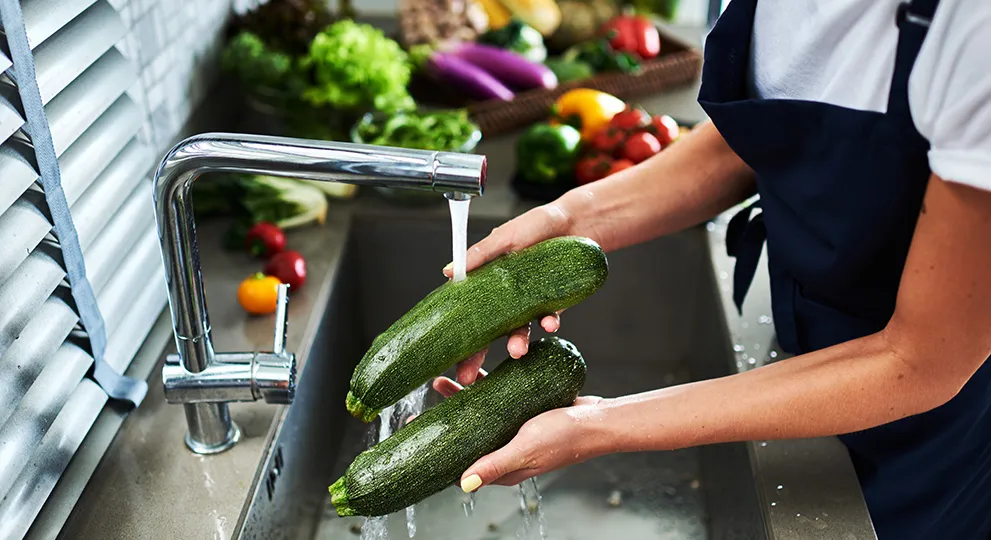6 tips to clean and prepare food
6 tips to clean and prepare food

Cancer and cancer treatment may affect the immune system, which helps the body fight infections and other diseases. There may be times during treatment when your white blood cell count, an indicator of immune system strength, is low, indicating weakened immunity. Therefore, when your white blood cell count is low, it is important to practice excellent food safety practices to help prevent foodborne illness.
Melissa Rifkin, a registered dietitian, shares her knowledge of nutrition when it comes to the importance of taking precautions when cleaning and preparing meals.
Food safety suggestions
When handling and preparing food, you can take precautions to help reduce your risk of foodborne illness. While you may be aware of some of them, others are not as obvious, but are just as important. While some may seem tedious, they each play a role in keeping you healthy.
- Frequent and thorough hand washing: Before handling food—and even while cooking—make sure to use plenty of soap and warm water when washing your hands and lather for at least 15-20 seconds. Outside of food prep, make sure to wash your hands after using the restroom, touching a pet, handling garbage and handling cleaning utensils, like sponges and rags. Also, keep hand sanitizer available when you don’t have access to soap and a sink.
- Keep food prep surfaces clean: Thoroughly wash countertops, cutting boards and cooking utensils before handling food. If you use sponges or towels for cleaning, make sure to disinfect them or swap them for clean versions frequently.
- Do not cross-contaminate: Have separate utensils and prep stations for raw animal protein and all other foods. All raw meat, seafood, poultry and eggs should be kept separate from ready-to-eat food items, and designate one cutting surface for raw animal protein and another for produce and dry goods.
- Thoroughly clean produce: All fruits and vegetables, even those with an outer peel you do not eat, need to be washed with warm water before eating directly or slicing into.
- Avoid self-serve eating stations: Salad bars, buffets and any other exposed food stations should be avoided. There is a possibility for food contamination as more people may be involved in food handling and service and food is likely sitting out for an extended period of time.
- Make sure food is properly cooked: Limit raw protein, including sushi, deli meat and unpasteurized milk and cheese. Also, ensure all animal proteins are cooked thoroughly at the following USDA recommended safe minimum internal temperatures. Use a food thermometer to be certain:
a. Steak: 145°F
b. Fish: 145°F
c. Pork: 160°F
d. Poultry: 165°F
Signs of foodborne illness or infection
Often times, foodborne illness presents with flu-like symptoms. If you notice any of the following symptoms, immediately contact your doctor or treatment team:
- Nausea
- Vomiting
- Diarrhea
- Fever
By taking these extra precautions, you may be able to greatly reduce your risk of foodborne illness. If you have friends or family helping to prepare meals, ensure they are also aware of these proper food handling techniques.
The information contained herein is provided for educational purposes only and is not intended to replace discussions with a healthcare provider. All decisions regarding patient care should be made with a healthcare provider.
Melissa Rifkin, MS, RD, CDN, is a registered dietitian from New York City where she has spent the last 10+ years working in oncology, surgery and bariatrics. She holds a bachelor’s degree in dietetics and a master’s degree in clinical nutrition. Melissa enjoys sharing her knowledge of nutrition and overall well-being through her Instagram account (@confessionofadietitian).













